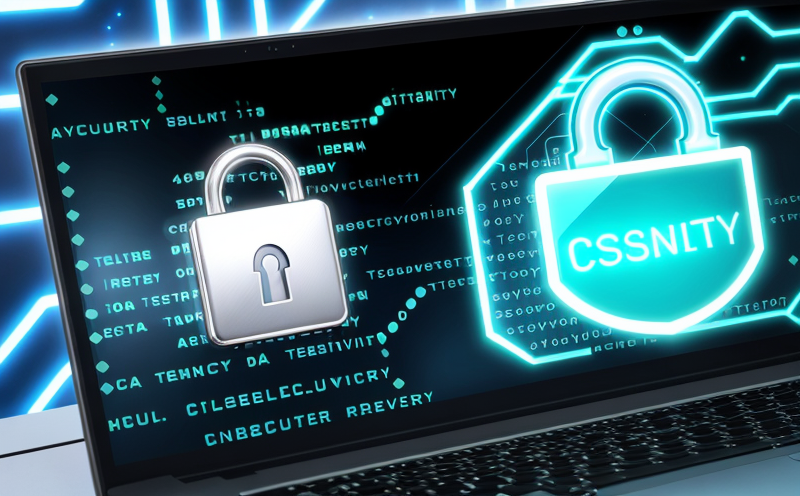ISO/IEC 27018 Data Privacy Protection in Connected Devices
The ISO/IEC 27018 standard is a cornerstone of data privacy protection, particularly for connected devices within the smart home and IoT sectors. It provides guidelines on how to implement privacy enhancing technologies (PETs) that ensure personal information remains secure while being processed by cloud service providers.
As quality managers and compliance officers navigate the complexities of handling sensitive data in today’s interconnected world, ISO/IEC 27018 serves as a benchmark for ensuring that devices and services meet stringent privacy standards. This standard is crucial because it addresses not only the technical aspects but also the procedural elements necessary to protect personal data effectively.
The implementation of ISO/IEC 27018 involves several key steps, including:
- Identifying the types of personal data that will be processed by the connected device.
- Evaluating the risk associated with processing this data.
- Implementing appropriate technical and organizational measures to mitigate those risks.
- Maintaining a continuous monitoring process to ensure ongoing compliance.
The standard covers various aspects of data handling, including:
- Data minimization: Collect only the personal data necessary for the specific purpose.
- Access control: Ensure that access to personal data is limited strictly to those who need it.
- Data retention and deletion policies: Establish rules on how long personal data should be retained and when it can be deleted.
In the context of smart home devices, compliance with ISO/IEC 27018 ensures that consumer privacy is not compromised. For instance, connected thermostats or security cameras must adhere to these guidelines to protect homeowners’ personal data from unauthorized access or breaches.
The standard also emphasizes the importance of transparency and accountability. Manufacturers and service providers are required to inform users about how their data will be used and ensure they have mechanisms for addressing any issues that arise.
Adherence to ISO/IEC 27018 is essential not only from a legal standpoint but also from a reputational one. Consumers expect their personal information to be protected, and failure to comply can lead to significant damage to brand reputation and potential legal consequences.
Why It Matters
The importance of ISO/IEC 27018 in the smart home and IoT sectors cannot be overstated. In an era where data breaches are increasingly common, protecting personal information is paramount. Compliance with this standard ensures that connected devices operate securely and transparently, fostering trust between manufacturers and their customers.
Data privacy is a critical concern for both consumers and businesses alike. By adhering to ISO/IEC 27018, companies can demonstrate their commitment to protecting user data, which can significantly enhance customer confidence in their products and services.
The standard also plays a crucial role in the regulatory landscape. Many countries have laws that mandate compliance with certain privacy standards, and ISO/IEC 27018 provides a harmonized approach that aligns seamlessly with these regulations. This ensures that companies do not face additional challenges when complying with multiple standards.
In summary, ISO/IEC 27018 is essential for maintaining the integrity of personal data in smart home and IoT devices, thereby safeguarding user privacy and enhancing overall security.
Applied Standards
| Standard Number | Description | Scope |
|---|---|---|
| ISO/IEC 27018:2014 | Data Privacy Protection in Connected Devices | Guidelines for the protection of personal information processed by cloud service providers. |
| ISO/IEC 27035-1:2016 | Risk Management Framework | Aims to provide a framework for identifying, assessing, treating, monitoring, reviewing, and communicating risks related to information security. |
| ISO/IEC 29147:2015 | Data Protection Impact Assessment (DPIA) | A tool used by organizations to assess the potential privacy impact of a project or initiative before it is implemented. |
The application of these standards ensures that connected devices meet rigorous data protection requirements, thereby enhancing user trust and security. ISO/IEC 27018 specifically focuses on cloud service providers but can be extended to any organization handling personal data in smart home environments.
Quality and Reliability Assurance
- Data Integrity Checks: Regular checks are performed to ensure that all personal data is accurate, complete, and up-to-date.
- User Consent Validation: Verification processes ensure that users have given explicit consent for the collection of their personal information.
- Anomaly Detection Systems: These systems monitor device performance and alert administrators to any unusual activity or potential breaches.
- Data Encryption Protocols: Strong encryption methods are used to protect data both in transit and at rest.
- Incident Response Plan: A well-defined plan is in place to address and mitigate the impact of any security incidents involving personal data.
The combination of these measures ensures that connected devices remain reliable and secure, providing users with peace of mind regarding their privacy.





